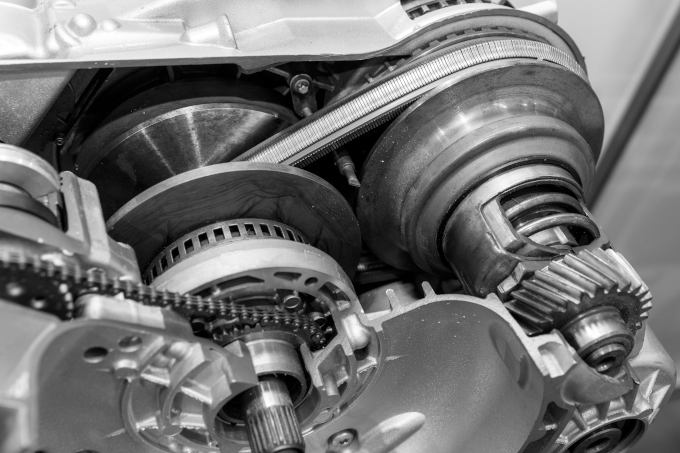Your vehicle's transmission is a critical component that plays a vital role in ensuring smooth and efficient operation. It's responsible for transferring power from the engine to the wheels, enabling your car to shift gears seamlessly and navigate different driving conditions. However, like any complex mechanical system, transmissions can experience issues over time. Recognizing the signs of transmission trouble early on can save you from more extensive and costly repairs down the road. In this article, we'll delve into the top 5 signs of transmission problems that you should never ignore.
Delayed or Rough Gear Shifts
One of the most common indicators of transmission trouble is experiencing delays or rough shifts when changing gears. You might notice a hesitation or lurching sensation when shifting from "Park" to "Drive" or during gear changes while driving. This could be caused by various factors, including worn transmission components, low fluid levels, or even a malfunctioning transmission control module. Ignoring these signs could lead to further damage and potentially leave you stranded.
What to Do:
If you notice delayed or rough gear shifts, it's essential to have your vehicle inspected by a qualified mechanic. A professional technician can diagnose the issue and recommend the necessary repairs or maintenance, which might involve changing the transmission fluid, replacing worn parts, or addressing electronic control problems.
Unusual Noises
Unusual noises coming from your vehicle are often a clear indication that something is amiss. If you hear grinding, whining, clunking, or buzzing sounds while driving, especially during gear changes, it's likely that your transmission is experiencing problems. These noises could be caused by damaged gears, worn bearings, or even a malfunctioning torque converter.
What to Do:
Any unusual noises should be promptly addressed by a professional mechanic. Ignoring strange sounds can lead to more severe transmission damage and potentially necessitate a full transmission replacement. Diagnosing the source of the noise and making the necessary repairs early can prevent further complications.
Transmission Fluid Leaks
Transmission fluid serves as both a lubricant and a coolant for the transmission system. If you notice reddish or brownish fluid pooling under your vehicle, it's a clear sign of a transmission fluid leak. Low fluid levels can lead to inadequate lubrication and overheating, which can result in significant transmission damage over time.
What to Do:
If you spot transmission fluid leaks, it's crucial to address the issue promptly. Check your vehicle's transmission fluid levels using the dipstick, and if necessary, top up the fluid to the recommended level. However, it's important to have a professional mechanic identify and repair the source of the leak to prevent further fluid loss and potential transmission damage.
Burning Odor
A burning smell emanating from your vehicle could indicate a variety of problems, and when it comes to transmissions, it's often associated with overheating transmission fluid. Overheating can lead to fluid breakdown, which in turn affects the performance and longevity of the transmission components.
What to Do:
If you detect a burning odor while driving, it's essential to address the issue promptly. First, check the transmission fluid levels and condition. If the fluid is low or appears dark and burnt, it's a sign of a potential problem. It's recommended to have your vehicle inspected by a professional technician who can diagnose the issue and recommend the appropriate course of action.
Dashboard Warning Lights
Modern vehicles are equipped with sophisticated onboard diagnostic systems that can detect various issues, including transmission problems. If your vehicle's dashboard lights up with a "Check Engine" or "Transmission" warning light, it's crucial not to ignore it. These lights indicate that the vehicle's computer has detected a fault in the transmission system.
What to Do:
When a warning light appears on your dashboard, it's advisable to have your vehicle scanned for error codes as soon as possible. Many auto parts stores and service centers offer free diagnostic scans. Once you've identified the specific issue causing the warning light, you can take the appropriate steps to address the problem.
Don’t Skip Your Checkup
Your vehicle's transmission is a complex and essential component that requires proper care and attention. Ignoring signs of transmission trouble can lead to more extensive and costly repairs down the line. If you experience delayed or rough gear shifts, hear unusual noises, notice transmission fluid leaks, detect a burning odor, or see dashboard warning lights, it's crucial to take action promptly. Regular maintenance, including checking transmission fluid levels, following manufacturer-recommended service intervals, and consulting with professional mechanics, can help you identify and address transmission issues before they escalate. By paying attention to these warning signs and acting quickly, you can keep your vehicle running smoothly and extend the lifespan of your transmission. If you think your vehicle may be having transmission problems, contact us today!











